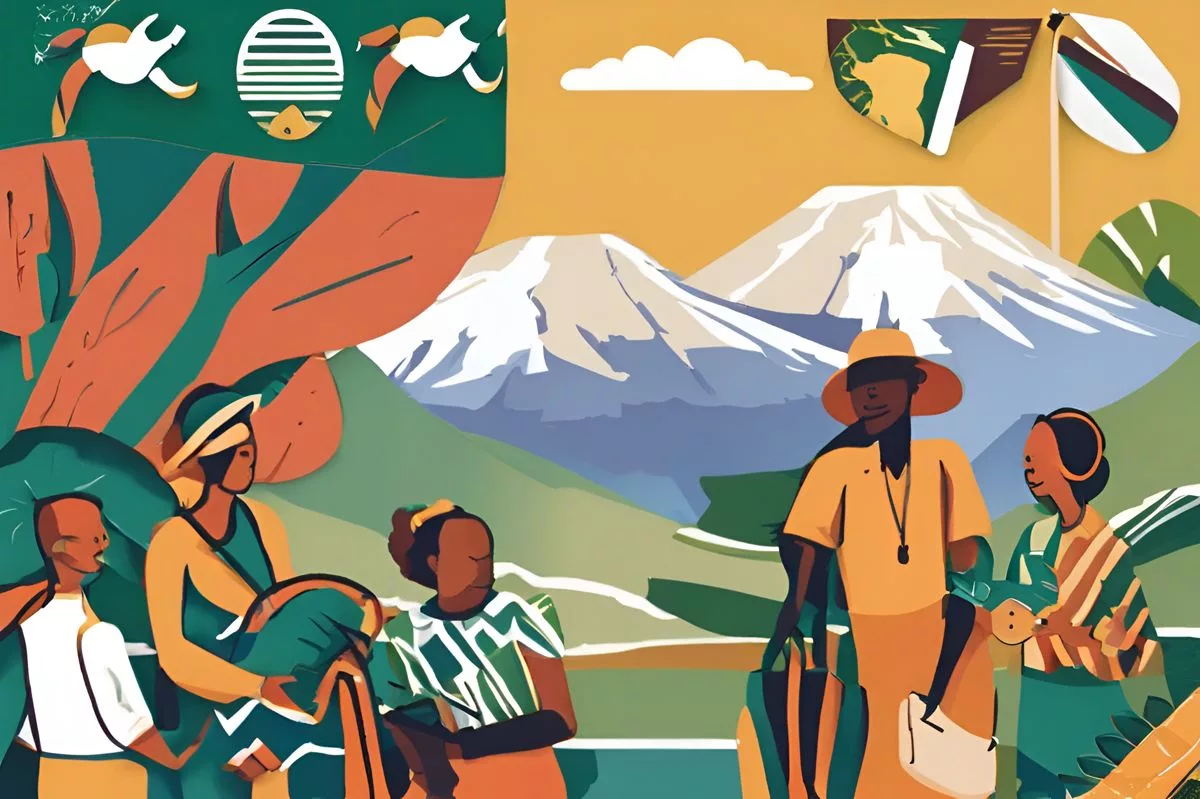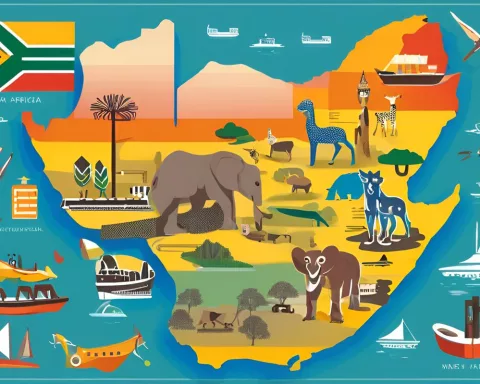The Minister of Tourism in South Africa, Patricia de Lille, aims to make tourism a crucial driver of economic progression and job provision in the country. Her vision is outlined in the National Development Plan and Tourism Sector Master Plan, which highlight the potential for skill enrichment, job formation, income generation, and sustainable community growth. Initiatives include a maintenance program for national parks, a national Air Access Strategy, and visa waivers. The tourism sector in South Africa is constantly evolving, and de Lille’s commitment to her role as Minister of Tourism is commendable.
What is the vision for South African tourism?
Patricia de Lille, the Minister of Tourism, aims to make tourism a crucial driver of economic progression and job provision in South Africa. The National Development Plan and Tourism Sector Master Plan outline the potential for skill enrichment, job formation, income generation, and sustainable community growth. The Tourism Sector Master Plan operates as a guide to steer the tourism sector towards complete recovery, focusing on safeguarding and revitalizing supply, reigniting tourism demand, and fortifying enabling capabilities. Initiatives include a maintenance program for national parks, a national Air Access Strategy, and visa waivers.
A Dynamic Landscape
The South African tourism sector is constantly evolving, sculpted by the collective efforts of diverse public and private entities. Among the vanguards of these transmutations is Patricia de Lille, the Minister of Tourism. She offered her insights on the Department of Tourism’s Budget Vote speech for the fiscal period of 2024/25.
Accustomed to the multifaceted duties and the significant burden of her role, de Lille, reappointed as the Minister of Tourism, remains an active participant in the tourism sector. Her dedication can be seen in her acknowledgment of the relentless efforts invested in keeping the industry buoyant. This is inextricably linked to her ambitions for the sector’s future.
Sector Constituents and Future Plans
The tourism sector’s framework is composed of an eclectic mix of stakeholders, not least of which are the public and private sectors, coupled with the communities vital to the sector’s proliferation. Under the auspice of the National Development Plan (NDP) and the Tourism Sector Master Plan, de Lille’s objective, molded by her prior 16-month term, revolves around the actualization of tourism as a crucial propellant of economic progression and job provision.
The NDP conceives a prospect of elevated employment, productivity, and incomes as the avenue to tackle inequality and enhance living standards, with the ultimate goal of a respectful life for all South Africans. It earmarks tourism as a pivotal driver of employment and economic expansion, further underlining its potential for skill enrichment for semi-skilled and unskilled workers.
The industry’s multi-layered aspect enables it to serve as a link between less developed locales and their more developed equivalents, surpassing spatial and geographical borders. It not only guarantees access to socio-economic services, possibilities, and choices for the public but also contributes to job formation, income generation, and sustainable community growth.
The Tourism Sector Master Plan
Inevitably bound with this vision is the function of the Tourism Sector Master Plan, ratified by the Cabinet in the preceding year. It operates as an inclusive guide for the government and all societal partners, defining collective efforts towards common goals for all South Africans’ welfare. By focusing on safeguarding and revitalizing supply, reigniting tourism demand, and fortifying enabling capabilities, the Master Plan aspires to steer the tourism sector towards complete recovery.
Global and Domestic Performance of Tourism
In 2023, the international performance of tourism, according to the World Tourism Barometer, saw a significant upsurge with an estimated growth of 33.4% in tourist arrivals from the previous year. Global tourist arrivals also saw a rise during the first quarter of 2024 by 19% compared to the corresponding period in 2023. The total contribution of travel and tourism to the global economy rose to a whopping 9.4 trillion US dollars in 2023, marking a 23.3% increase from the previous year.
On a domestic level, South Africa’s tourism performance recorded impressive growth in 2023, with an upswing of 48.9% in tourist arrivals compared to 2022. South Africa hosted nearly 8.5 million tourists from across the globe, roughly 6.4 million visitors originating from the African continent. Consistent growth in arrivals was observed from various markets including Asia, Europe, America, the United Kingdom, Africa, and the Middle East.
Strategic Initiatives for Tourism Growth
As the chief of the Department of Tourism, de Lille endorses a wide range of initiatives to strengthen the tourism sector. This includes the execution of a maintenance program targeting national parks, the formulation of a national Air Access Strategy to augment the number of direct flights to and from South Africa, and progress with visa waivers enabling passport holders from 132 countries to visit South Africa visa-free for up to 90 days.
Patricia de Lille’s staunch commitment to her role as Minister of Tourism, with her recognition of tourism’s potential for job creation and economic growth, is commendable. Her endeavors, in conjunction with those of her team and all the societal partners, reaffirm the potential of tourism as a potent force in the South African economy and in the transformation of its citizens’ lives.
1. What is the vision for South African tourism?
Patricia de Lille, the Minister of Tourism, aims to make tourism a crucial driver of economic progression and job provision in South Africa. The National Development Plan and Tourism Sector Master Plan outline the potential for skill enrichment, job formation, income generation, and sustainable community growth.
2. Who are the stakeholders involved in the South African tourism sector?
The tourism sector’s framework is composed of an eclectic mix of stakeholders, not least of which are the public and private sectors, coupled with the communities vital to the sector’s proliferation.
3. What is the Tourism Sector Master Plan and what does it aim to achieve?
The Tourism Sector Master Plan operates as an inclusive guide for the government and all societal partners, defining collective efforts towards common goals for all South Africans’ welfare. By focusing on safeguarding and revitalizing supply, reigniting tourism demand, and fortifying enabling capabilities, the Master Plan aspires to steer the tourism sector towards complete recovery.
4. How has global and domestic tourism performed in recent years?
In 2023, the international performance of tourism saw a significant upsurge with an estimated growth of 33.4% in tourist arrivals from the previous year. On a domestic level, South Africa’s tourism performance recorded impressive growth in 2023, with an upswing of 48.9% in tourist arrivals compared to 2022.
5. What are the strategic initiatives for tourism growth in South Africa?
The initiatives to strengthen the tourism sector include the execution of a maintenance program targeting national parks, the formulation of a national Air Access Strategy to augment the number of direct flights to and from South Africa, and progress with visa waivers enabling passport holders from 132 countries to visit South Africa visa-free for up to 90 days.
6. What is the role of Patricia de Lille in promoting tourism in South Africa?
As the chief of the Department of Tourism, Patricia de Lille endorses a wide range of initiatives to strengthen the tourism sector. Her dedication can be seen in her acknowledgment of the relentless efforts invested in keeping the industry buoyant. Her endeavors, in conjunction with those of her team and all the societal partners, reaffirm the potential of tourism as a potent force in the South African economy and in the transformation of its citizens’ lives.












